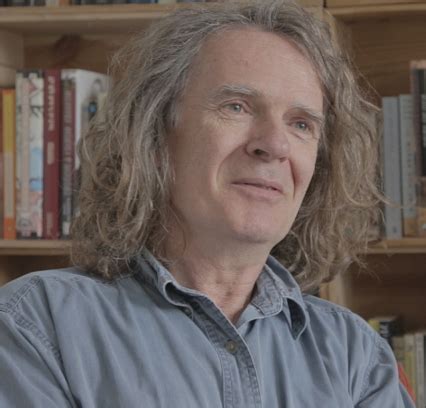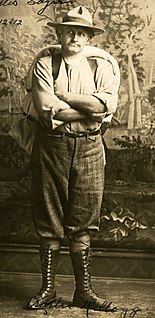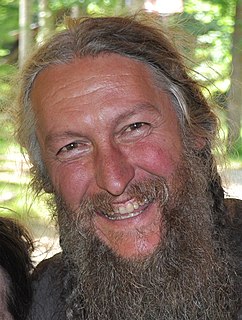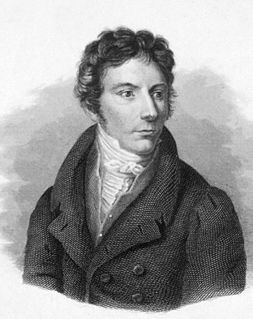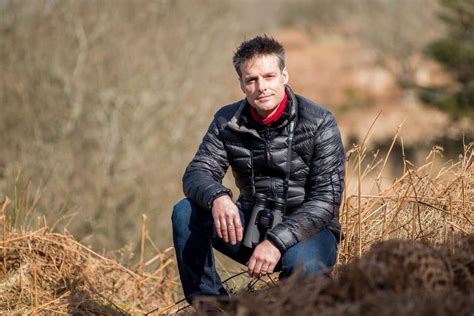A Quote by Alexander von Humboldt
Time is the most important thing in human life, for what is pleasure after the departure of time? and the most consolatory, since pain, when pain has passed, is nothing. Time is the wheel-track in which we roll on towards eternity, conducting us to the Incomprehensible. In its progress there is a ripening power, and it ripens us the more, and the more powerfully, when we duly estimate it. Listen to its voice, do not waste it, but regard it as the highest finite good, in which all finite things are resolved.
Quote Topics
After
Conducting
Departure
Estimate
Eternity
Finite
Good
Highest
Human
Human Life
Important
Important Thing
Incomprehensible
Life
Listen
More
More Power
Most
Most Important Thing
Nothing
Pain
Passed
Pleasure
Power
Progress
Regard
Resolved
Ripening
Roll
Since
The Most Important
Thing
Things
Time
Towards
Track
Us
Voice
Waste
Wheel
Which
Related Quotes
The feeling of awed wonder that science can give us is one of the highest experiences of which the human psyche is capable. It is a deep aesthetic passion to rank with the finest that music and poetry can deliver. It is truly one of the things that make life worth living and it does so, if anything, more effectively if it convinces us that the time we have for living is quite finite.
It is completely incomprehensible to us how God can reveal himself and to some extent make himself known in created beings: eternity in time, immensity in space, infinity in finite, immutability in change, being in becoming, the all, as it were, in that which is nothing. This mystery cannot be comprehended; it can only be gratefully acknowledged.
It is only great pain--that slow, sustained pain that takes its time, in which we are, as it were, burned with smoldering green firewood--that forces us philosophers to sink to our ultimate profundity and to do away with all the trust, everything good-natured, veil-imposing, mild and middling, on which we may have previously based our humanity. I doubt that such a pain makes us 'better'--but I know that it makes us deeper.
What I assert and believe to have demonstrated in this and earlier works is that following the finite there is a transfinite (which one could also call the supra-finite), that is an unbounded ascending lader of definite modes, which by their nature are not finite but infinite, but which just like the finite can be determined by well-defined and distinguishable numbers.
But pain may be a gift to us. Remember, after all, that pain is one of the ways we register in memory the things that vanish, that are taken away. We fix them in our minds forever by yearning, by pain, by crying out. Pain, the pain that seems unbearable at the time, is memory's first imprinting step, the cornerstone of the temple we erect inside us in memory of the dead. Pain is part of memory, and memory is a God-given gift.
Life holds one great but quite commonplace mystery. Though shared by each of us and known to all, seldom rates a second thought. That mystery, which most of us take for granted and never think twice about, is time. Calendars and clocks exist to measure time, but that signifies little because we all know that an hour can seem as eternity or pass in a flash, according to how we spend it. Time is life itself, and life resides in the human heart.
Whether we eat, sleep, work, play, whatever we do life contains dissatisfaction, pain. If we enjoy pleasure, we are afraid to lose it; we strive for more and more pleasure or try to contain it. If we suffer pain we want to escape it. We experience dissatisfaction all the time. All activities contain dissatisfaction or pain, continuously.
Worship is the highest act of which a person is capable. It not only stretches us beyond all the limits of our finite selves to affirm the divine depth of mystery and holiness in the living and eternal God, but it opens us at the deepest level of our being to an act which unites us most realistically with our fellow people.
All is finite in the present; and even that finite is infinite in it velocity of flight towards death. But in God there is nothing finite...Upon a night of earthquake he builds a thousand years of pleasant habitations for man. Upon the sorrow of an infant he raises oftentimes from human intellects glorious vintages that could not else have been.
Even so does he who provides for the short time of this life, but takes no care for all eternity; which is to be wise for a moment, but a fool for ever; and to act as crossly to the reason of things as can be imagined; to regard time as if it were eternity, and to neglect eternity as if it were but a short time.
In his (Christ's) surrender on the cross all the pain and agony of mankind was concentrated at a single point, and passed through from death to immortality, There is no pain of any creature from the beginning to the end of time which was not 'known' at this point and thus transmuted. To know all things in the Word is thus to know all the suffering of the world transfigured by the resurrection, somehow reconciled and atoned in eternal life. It was God's purpose which he set forth in Christ as a plan for the fullness of time, to unite all things in him, things on heaven and things on earth'.
Eternity isn't some later time. Eternity isn't a long time. Eternity has nothing to do with time. Eternity is that dimension of here and now which thinking and time cuts out. This is it. And if you don't get it here, you won't get it anywhere. And the experience of eternity right here and now is the function of life.









